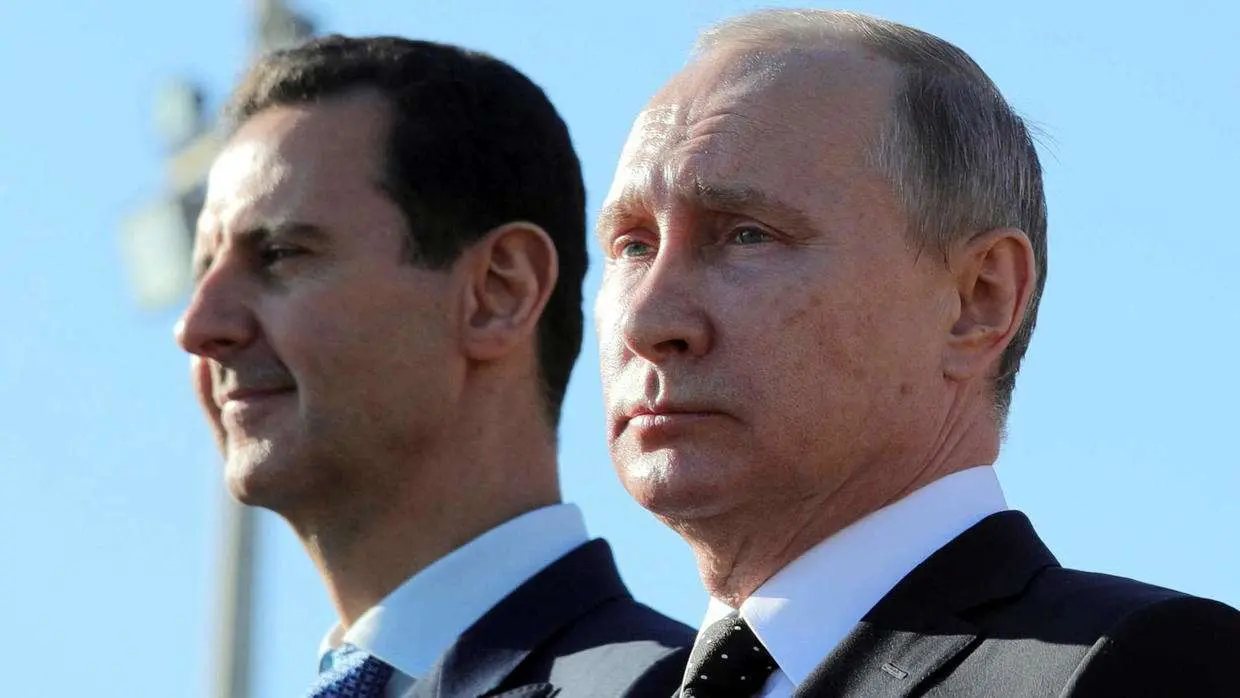Syria, the ruined Russian protectorate with Bachar al-Asad

He was called, and promised, to modernize a country that his father Hafez had ruled with an iron hand. But today, Bachar al-Asad's Syria is a country in ruins, from which neither corruption nor bloody repression against the slightest dissent has disappeared. The gentle ophthalmologist trained in the United Kingdom has ended up changing his views on everything except the common factor in the family: controlling power at any price, whoever falls, and liquidating whoever is necessary.
On 17 July 2000, the Constitution had to be amended to allow Bachar to succeed his father and be sworn in as president and commander-in-chief of the Syrian armed forces. The law required a man of at least 40 years of age for such positions; Bachar counted only 34. Young blood in any case to bring Syria out of the isolation in which her father, Hafez al-Asad, had locked her up, condemned by the international community after the violent repression in 1982 of the protests against his regime, which resulted in 20,000 deaths.
At home and abroad, Bachar was given credibility and trust. France and the United States supported him while the country was experiencing a trade boom and an unknown explosion of holiday and conference tourism. Foreign investment was flowing and the number of discussion forums multiplied, renewing the attraction of Damascus, whose four thousand years of history make it the oldest working capital in the world.
Everything would change radically after the protests that took place in the southern city of Deraa in March 2011, as part of the fire of that supposed Arab Spring, which overthrew like dominoes apparently as eternal and solid regimes as those of Libya and Egypt. Bachar unleashed a repression that bore the unmistakable accent of the Assyrians and was ready to cling to power even at the cost of a war, which began as a civil war and ended up becoming a brutal scenario of multilateral confrontation. The death toll has long since stopped, although the most reliable sources put it at around half a million, plus almost two million injured of various kinds and no less than six million displaced persons and refugees, 80% of whom are surviving in miserable conditions in the camps in Lebanon, Jordan, Turkey or Greece.
Syria's ruin has ended with Lebanon, its own protectorate until the 2005 car bombing of Prime Minister Rafik Hariri. An assassination that triggered constant protests that ended the presence of three decades of Syrian troops in the country of cedars.
Bachar al-Asad clung to Iran's aid in 2012 to prevent the progress of the joint opposition forces. The regime invented a weapon as primitive as it was savagely destructive: explosive barrels, loaded with enough shrapnel to be thrown from the air to multiply the carnage. The United Nations also accuses him of using chemical weapons against civilians and even hospitals, a use that is not made by certain types of dictators. The German judiciary also accused him of more than 13,000 deaths resulting from torture in prisons controlled by the Mujabarat, his fearsome secret services.
When Iranian aid was not enough to win the war, the Russian air force came to his aid. From 2015 onwards, the air force gained influence and turned Syria into a de facto protectorate of Moscow, which has established both its naval and air presence by means of two bases on Syrian territory. For its part, the United States, at the head of an international coalition, intervened after the proclamation of the Islamic State in 2015, but leaving the ground free once the defeat of ISIS and the disbandment of the bloody jihadist armies was consummated.
Bachar al-Asad now controls barely 70% of this ruined Syria, which according to the World Bank would need at least 350 billion euros to begin its reconstruction. In addition to aid and control from Iran and Russia, his stay in power has been based on support from minorities, starting with his own, the Alawi, along with the Druze, Christians and Palestinians. An ethnic mosaic that was once the symbol of his undeniable intellectual dynamism and his desire to become the best bridge between East and West.
Next year there will be new presidential elections. There is speculation that Russia would like a different candidate in its Syrian protectorate, one who would enjoy the agreement of the international community and facilitate the reconstruction of the country, including of course the return of the millions of refugees whose uncontrolled diaspora shattered the very foundations of the European Union. The problem is that Bachar al-Asad is unrivalled, he has wiped them all out, and it is not easy to manufacture a successor to rebuild that field of ruins.

